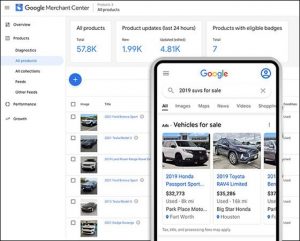“Should we mention our competitors?”
“Should we call them by name?”
It’s a familiar set of questions to anyone planning their company’s content strategy.
Most corporate style guides advise against naming competitors.
“Naming” could cause problems. You might end up looking smaller (or larger) in the eyes of prospects. You might also blur honest distinctions by doing a side by side comparison, turning yourself into a commodity.
Calling them by name could also:
- give them (free) publicity
- awaken/intensify the rivalry
- trigger a lawsuit
Not mentioning competitors is risky too. It might look to prospects as if you’re hiding something. Or clueless. Or cocky.
It’s not always obvious which path to take. Sometimes you might have to reverse course. How you acknowledge competitors ties into your positioning, branding, and reputation.
And though positioning takes a long time to build, it can crumble overnight.
Did Steve Jobs have competitors?
During his second stint as Apple, Inc.’s CEO, Steve Jobs never once mentioned his competitors publicly.
Privately, he’d mock, curse, and sneer at them. But in public they didn’t exist.
Jobs, as you probably know, was a master showman. He’d take the stage at Apple events, like the MacWorld conference, to gin up excitement for upcoming iGadgets.
On the strength of his tightly-choreographed pitches alone, Apple sold hundreds of millions of products.
Jobs generally gave himself high marks for his presentations. Not a small feat, considering his perfectionism.
He’d spend hours practicing in order to make the performance look casual… effortless. Everything — lighting, music, staging — had to be perfect. Usually it was.
Except one time it wasn’t. Even masters make mistakes.
And Jobs made a big one when he NAMED his chief rival, his #1 competitor… Bill Gates.
He didn’t just name him, he SHARED the stage with him. To announce a deal.
But he didn’t just share the stage… he CEDED it to him.
You see, Gates appeared at this event, via Jumbotron. He TOWERED over Jobs as they talked.
Jobs later said it was his “stupidest staging event ever.” It made him look “small,” and by extension Apple. As if Apple was subservient to Microsoft. Perish the thought!
It wasn’t MEANT to be that way. Jobs had asked Gates to appear live with him, onstage. However, negotiating the deal took longer than expected. Which meant Gates didn’t have time to fly cross-country to the event.
Now obviously, Jobs recovered from the naming misstep. Apple went on to become the world’s most valuable company.
But don’t miss the takeaway. Naming competitors (or not) is significant.
When you’re an upstart company taking on an industry giant, calling them out by name is a no-brainer. Remember how Uber taunted the taxi cartels. How else could they have disrupted the status quo? You’d be almost foolish not to copy them.
Likewise, if you’re an industry giant, naming every two-bit rival bent on challenging your supremacy would be a colossal waste of time. You couldn’t keep track of them all! Just think how petty Facebook would look if they called out every new social site that was trying to chip away at their audience.
Most companies exist somewhere between tiny and industry leader. And it’s here — the middle road — where things get hazy.
If your company is sitting in limbo, wondering whether to go after your rivals by name, or act like they don’t exist, run, at minimum, a cost-benefit analysis.
Once you’ve made a decision, go all in. Consistency is the key to an effective content strategy.
This article originally appeared on MikeDevaney.com.
Business & Finance Articles on Business 2 Community(116)







